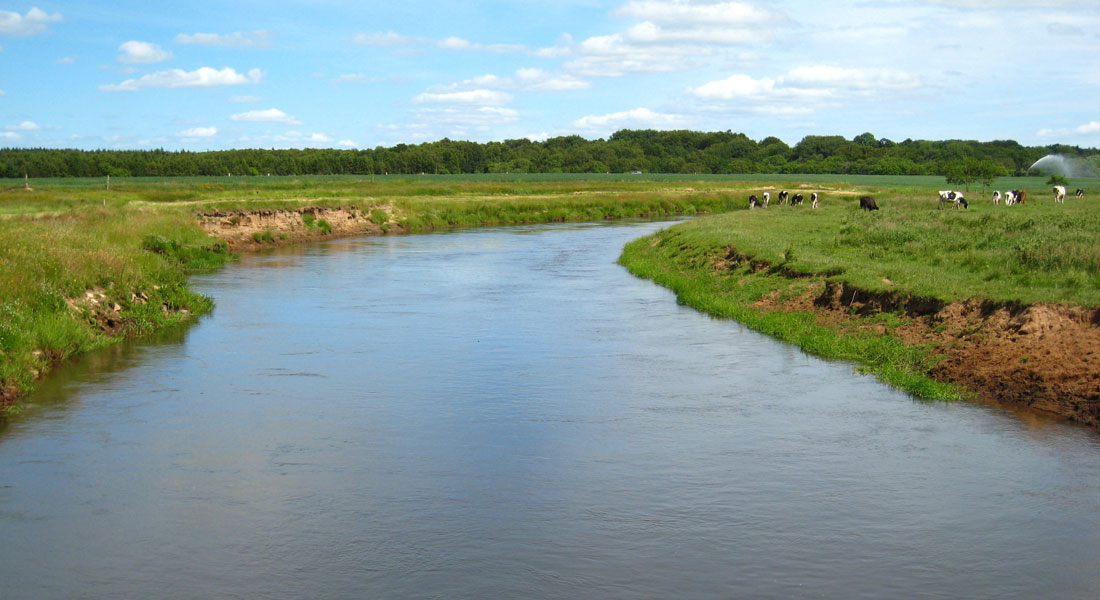Vestskoven – the afforestation platform (UCPH)
HOBE - the Danish hydrological observatory (UCPH)
The Lake platform (AU)
DK-Sor – the temperate forest Lille Bøgeskov platform (DTU)
Danish Wadden Sea platform (AU)
The heathland platforms (AU)
LTER Denmark
The overall aim of LTER-DK is to provide research platforms and long-term legacy data on ecosystems responses and adaptation to environmental and societal drivers as the scientific basis for sustainable use of the goods and services ecosystems provide. This will support future societal initiatives towards a green transition. We aim to improve, document and operationalize the research platforms and build a strong national community to realize the full research potential of the research platforms at global, European and national scale for the scientific communities, students, policy makers and other users outside academia.
LTER-DK addresses ecosystem and socio-ecological research issues such as biodiversity loss and climate change adaptation and mitigation in a holistic and multidisciplinary manner with the aims to improve understanding of ecosystems and their long-term responses and adaptation to environmental and societal drivers.
LTER-DK includes important long-term Danish research and/or monitoring platforms, across terrestrial, freshwater and coastal environments, which will link to similar platforms at European level through eLTER. Method standardization, data protocols and documentation of legacy data are important LTER products. Centralized data structures provide data across environmental gradients and ecosystem types and enables answers to local and global challenges with regard to ecosystem functioning and the goods and services they provide in a changing environment.
Data and facilities are open for use taking the carrying capacity of the platforms into account.

- Upgrade the Danish platforms to meet the requirements of eLTER with regard to measurements and data collection
- Collect, share and integrate data across different ecosystems, experiments, disciplines and institutions following the principle of FAIR[1]
- Harmonize measurements and data collection, data storage and sharing of environmental data through common protocols and methodologies
- Develop modelling and remote sensing tools for biogeochemical and hydrological cycling and biodiversity and their interactions across ecosystem and catchment scale
- Visualize and provide access to the research facilities and long-term data for the national as well as the international scientific communities, students and users outside academia.
- Dissemination through training, education and best practise guidelines
- Significantly contribute to the development of the eLTER research infrastructure and preparatory phase (eLTER PLUS and eLTER PPP).
[1] FAIR - a set of guiding principles to make data Findable, Accessible, Interoperable, and Reusable
ACCESS to the platform and data
The research platforms span facilities across terrestrial, freshwater and coastal water environments, and cover multiple stressors and their impacts on natural resources, ecosystems and biodiversity.
Data and facilities are open for use taking the carrying capacity of the platforms into account.
The potential data users are the scientific communities, students and users outside academia, e.g. SME’s, land managers and policy makers. Access to the sites and user support will trigger synergies and collaboration across a multitude of users and integrate the Danish ecosystem research both within Denmark and within international research communities.
Data are stored locally and are freely available from some of the platforms. We aim to store the meta data centrally in Europe in the database DEIMS, which makes it possible to create system and cross-system analyses and modelling, and thereby provide valuable answers to local and global challenges for scientific communities, students, policy makers and other users outside academia.
Contacts: See the specific platforms
University of Copenhagen (UCPH), Dept of Geosciences and Natural Resource Management.
Contact: Prof. Inger Kappel Schmidt, iks@ign.ku.dk
Aarhus University (AU), Dept. og Ecosciences,
Contact: Prof. Christian Frølund Damgaard, cfd@ecos.au.dk
Technical University of Denmark (DTU), Dept. of Environment,
Contact: Associate Professor Andreas Ibrom, anib@env.dtu.dk
Platforms
Funded by:

LTER Denmark was accepted on the national Danish roadmap for research infrastructures in 2020 and in 2022 it received 15.3 mill. DKK from the Ministry of Higher Education and Research for a five-year funding.
In addition, the Universities will co-fund LTER Denmark by 15.3 mill. DKK in the project period and additional funding ensuring 5 years of operation beyond 2027.
Project: LTER Denmark
Period: 2022-2027
Contact
Professor Inger Kappel Schmidt
iks@ign.ku.dk






